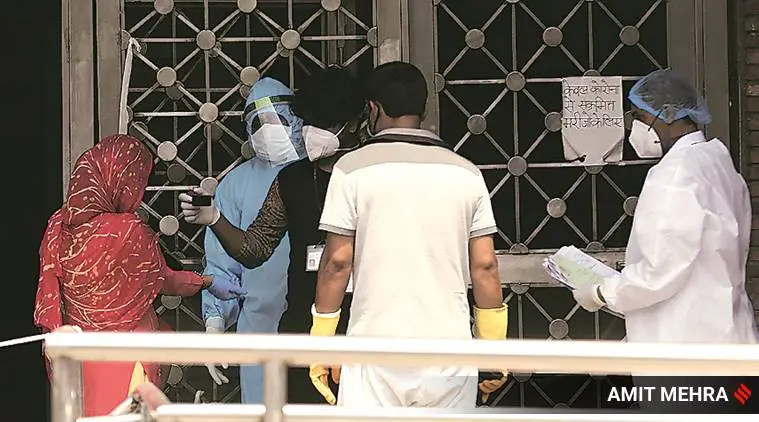 This is not an isolated incident where ASHA workers have faced offensive behaviour of suspects reported by them. (Representational)
This is not an isolated incident where ASHA workers have faced offensive behaviour of suspects reported by them. (Representational)
Despite suspicious residents, a perpetual fear of contracting the virus, and long working hours, the capital’s ASHA (Accredited Social Health Activist) workers continue to be the first line of defence in the Covid fight.
At the VP Singh JJ camp, a slum in Tughlakabad where residents live with large families in congested, one-two bedroom houses, Kundan (49), one of the three ASHA workers in the community, conducts door-to-door surveys and keeps a tab on residents showing Covid symptoms, or those who have come in contact with a positive case in the past 14 days.
“We head out daily and keep track of all households. Our workload has increased immensely since the pandemic, as we need to keep ourselves informed of the status of quarantined residents,” said Kundan, who has been working as an ASHA worker since 2008 and earns Rs 3,000 a month.
Kundan also keeps track of households with positive patients and provides them medicines and other facilities.
If a resident is symptomatic, their personal and Aadhaar card details are taken by ASHA workers and they are directed to the dispensary for a test. “We inform the dispensary also… There is no way of knowing who is positive if we don’t do the surveys,” said Kundan.
On June 29, after the surveys began on May 24, Kundan chose nine people of different age groups for an antibody test at the Pul Prahlad Pur dispensary. “We told them we wanted to know how much immunity they have, and they understood. We always give them a choice.”
Till now, only a handful of residents at the camp are positive — three from the family of another ASHA worker.
ASHA worker Bhagwan Devi (44), who lives with her husband, two children aged 27 and 23, and 13-year-old granddaughter, had developed fever, low BP and vomiting. She tested positive on June 7 and got out of quarantine on June 17. Now part of the survey, Devi said she has been at the receiving end of resistance from the community: “Since everyone knows I tested positive, no one likes to talk to me.”
Kundan said there is a degree of secrecy among residents who don’t report symptoms fearing stigma.
“But after trying multiple times, they open their doors. They get defensive, not wishing to let anyone know they are ill,” she said.
She was also instrumental in helping Farhana (28), who gave birth to a boy on June 14 and was asked to get tested before delivery. She tested positive on June 5 and was hospitalised. She has now recovered.
“We get women in the last stages of pregnancy tested and maintain records, since no hospital allows entry without a test report. I came to Farhana’s house every two days to ensure she was fine,” said Kundan.